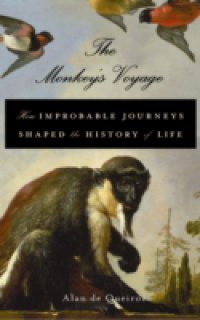How did species wind up where they are today? Scientists have long conjectured that plants and animals dispersed throughout the world by drifting on large landmasses as they broke up, but in The Monkeys Voyage, biologist Alan de Queiroz offers a radical new theory that displaces this passive view. He describes how species as diverse as monkeys, baobab trees, and burrowing lizards made incredible long-distance ocean crossings: pregnant animals and wind-blown plants rode rafts and icebergs and even stowed away on the legs of sea-going birds to create the map of life we see today. In the tradition of John McPhee's Basin and Range and David Quammen's The Song of the Dodo, The Monkeys Voyage is a beautifully told narrative of a profound investigation into the importance of contingency in history and the nature of scientific discovery.

